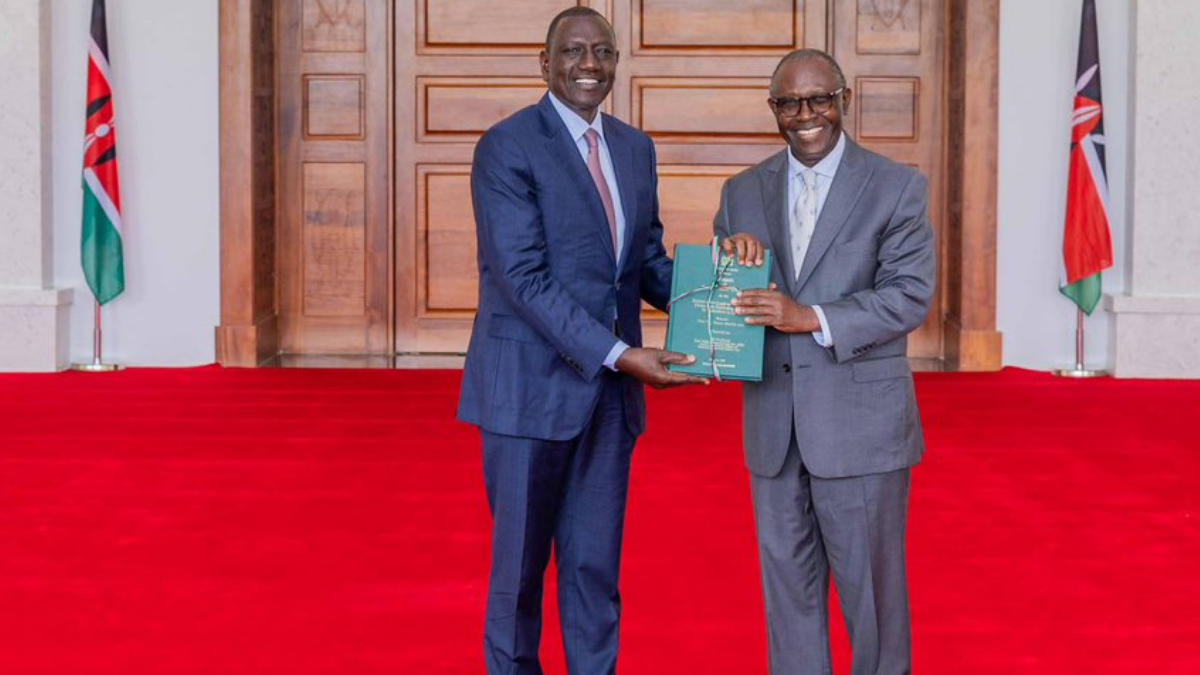The proposed Religious Organisations Bill, 2024, submitted to President William Ruto by the Presidential Taskforce on the Review of the Legal and Regulatory Framework Governing Religious Organisations, seeks to curb religious extremism and financial misconduct within religious institutions. This draft law proposes the establishment of a Religious Affairs Commission to oversee religious matters and enforce the new regulations.
Key Provisions of the Bill
1. Financial Accountability
The draft bill mandates that all religious organizations submit annual financial returns to the government. These returns must include detailed accounts, a register of members, and other required documents. Any institution that fails to file these returns on time will face penalties for late filing. Moreover, submitting false information or omissions in these documents will be considered an offense, punishable by a fine of up to Ksh.100,000 or imprisonment for up to one year, or both. Non-compliance in filing annual returns could result in a suspension of the religious institution for up to six months.
2. Oversight and Inspection
The proposed law grants the Religious Affairs Commission the authority to inspect the financial records and member registers of religious institutions. Such inspections can be carried out by the commission itself or any person authorized in writing by the commission. Obstructing these inspections will also be an offense, with penalties mirroring those for financial misconduct.
3. Establishment of the Religious Affairs Commission
The Religious Affairs Commission will be responsible for registering religious organizations, providing oversight, and ensuring compliance with the law. The commission will develop and implement policies on religious organizations, advise the government on religious affairs, and create a code of conduct for religious entities. It will also conduct research on matters affecting religious institutions and disseminate the findings to the public.
The commission will be composed of a chairperson appointed by the President, representatives from various government departments, and nominated members from key religious organizations, including the Evangelical Alliance of Kenya, the National Council of Churches of Kenya, the Kenya Conference of Catholic Bishops, Muslim umbrella organizations, and the Hindu Council of Kenya. Members will serve three-year terms, with the possibility of re-appointment for an additional term.
4. Addressing Fraudulent Practices
In an effort to combat fraudulent religious practices, the bill imposes severe penalties on religious leaders who deceive their followers for financial gain. Those found guilty of performing fake miracles, healings, or blessings to extort money could face fines up to Ksh.5 million or imprisonment for up to ten years, or both. Additionally, religious leaders using coercion to force individuals into their faith could face fines up to Ksh.1 million or a three-year jail term, or both.
5. Promoting Religious Tolerance and Safety
The bill emphasizes the importance of religious liberty and tolerance, proposing penalties for actions that belittle or threaten the safety of individuals based on their religious beliefs. Offenders could face fines up to Ksh.5 million, 20 years of imprisonment, or both. Furthermore, the taskforce recommends that religious institutions refrain from engaging in political activities to gain power or support political candidates. Violations of this provision could result in fines up to Ksh. 500,000, six months of imprisonment, or both.
The task force that drafted the bill was formed in May 2023, following the Shakahola forest massacre in Malindi, Kilifi County. This tragedy, orchestrated by Paul Mackenzie of the Good News International Church, resulted in the deaths of over 400 people. Mackenzie allegedly ordered his followers to starve themselves and their children to death to attain heaven. This incident, which brought to light the extreme and dangerous practices of some religious leaders, underscored the urgent need for regulatory reform.
Mackenzie, currently in police custody, has been charged with terrorism, along with 94 co-defendants who have pleaded not guilty. The charges also include murder, manslaughter, and child torture and cruelty. Over 440 bodies have been retrieved from Shakahola forest, with autopsies revealing that, in addition to starvation, some victims were strangled, beaten, or suffocated. Previous court documents also suggest organ removal in some cases.
















